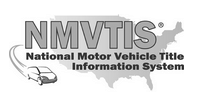Warranty Check by VIN
Check Your Vehicle’s Warranty Status by VIN
Enter your VIN to instantly verify manufacturer warranties, coverage status, and expiration details.
Supported Vehicle Brands
Run our free VIN decoder to decode a VIN from any of the following brands:
Why Check Warranty by VIN?
Avoid Costly Repairs
Know if your car is still under manufacturer coverage.
Verify Remaining Coverage
Confirm what’s still covered—and for how long.
Shop With Confidence
Check warranties before buying a used car.
What is a Car Warranty and How Does It Work?
A car or auto warranty is a commitment made by the manufacturer or warranty provider to cover the costs of certain repairs or replacements for a specific period. There are different types of warranties — each offering varying levels of coverage.
Bumper-to-Bumper Warranty
The Bumper-to-Bumper Warranty covers almost all of the vehicle’s parts for a specified period of time or mileage, except for wear-and-tear items like tires and brakes. It offers the most comprehensive coverage and is usually provided by the manufacturer for a limited time, such as 3 years or 36,000 miles.
Powertrain Warranty
The Powertrain Warranty specifically covers the major components of the vehicle’s powertrain, including the engine, transmission, and drivetrain. It typically lasts longer than the bumper-to-bumper warranty, such as 5 years or 60,000 miles.
Battery warranty
A battery warranty is a guarantee from the manufacturer that covers the replacement or repair of a battery within a specific time frame if it fails to hold a charge or perform as specified. It helps to protect consumers from having to incur the cost of replacing a defective battery within the warranty period.
Hybrid component warranty
A hybrid component warranty provides coverage for costly repairs or replacements of the unique components found in hybrid vehicles, such as the battery and electric drivetrain. This type of warranty can offer peace of mind and financial protection for hybrid vehicle owners.
Corrosion Warranty
The Corrosion Warranty covers the vehicle against rust-through corrosion for a specific period, often ranging from 5 to 10 years. It protects against damage caused by corrosion that perforates the body panels from the inside out.
Emissions Warranty
The Emissions Warranty covers the vehicle’s emissions control systems for a certain period, ensuring that the vehicle meets the required environmental standards. It is often mandated by federal or state regulations and can last up to 8 years or 80,000 miles.
Hybrid/Electric Vehicle Warranty
This type of warranty is specifically tailored for hybrid and electric vehicles, covering their unique components such as the battery, electric motor, and other related parts. It typically lasts longer than traditional warranties, as these components can be expensive to repair or replace.
Roadside assistance warranty
A roadside assistance warranty is a service provided by an automobile manufacturer or third-party company that offers emergency assistance in the event of a breakdown or other roadside issue. This can include services such as towing, jump-starting batteries, changing flat tires, and providing fuel if the vehicle runs out.
Certified pre-owned (CPO) warranty
A certified pre-owned (CPO) warranty is a guarantee provided by a manufacturer or dealer who has thoroughly inspected and refurbished a used vehicle to meet specific quality standards. This warranty typically provides coverage for a certain period of time or a certain number of miles, giving buyers added confidence in their purchase.
Extended warranty
This type of warranty can be purchased separately and extends the coverage of the manufacturer’s warranty for a longer period or more miles.
Limited warranty
A limited warranty is a warranty provided by a manufacturer that covers specific defects or malfunctions up to a certain time period or usage limit. It typically has conditions and limitations on the coverage provided.
Full warranty
A full warranty may provide the consumer with a complete guarantee that the product will be repaired, replaced, or refunded if it is found to be defective within a specified time period. This type of warranty covers all parts and labor, with no cost to the consumer for repairs or replacements.
How to determine if my vehicle is still covered under warranty?
Read the Owner’s Manual
Check the owner’s manual or warranty information provided by the manufacturer to see the specific coverage period.
Contact Dealership or Manufacturer
Contact the dealership or manufacturer directly and provide the vehicle’s VIN (Vehicle Identification Number) to inquire about the warranty status.
Visit Manufacturer’s Main Page
Visit the manufacturer’s website and use their online tool to check the warranty status of the vehicle.
Be Attentive to Vehicle Notifs
Check for any ongoing recalls or warranty-related notifications from the manufacturer or dealership that may come from SMS and email.
What to do if my warranty has expired?
If your vehicle’s warranty has expired, there are several steps you can take to ensure continued protection and minimize unexpected repair costs:
1. Consider Purchasing an Extended Warranty
- Third-Party Extended Warranty: Research and purchase an extended warranty from a reputable third-party provider. These warranties can cover major repairs and provide additional benefits such as roadside assistance.
- Manufacturer’s Extended Warranty: Some manufacturers offer extended warranty plans that can be purchased even after the original warranty expires. Check with your vehicle’s manufacturer for availability and details.
2. Regular Maintenance
- Follow the Maintenance Schedule: Adhering to your vehicle’s maintenance schedule can help prevent major issues. Regular oil changes, tire rotations, brake inspections, and other routine services can keep your car running smoothly.
- Keep Records: Maintain detailed records of all maintenance and repairs. This can be helpful for future warranty claims or when selling the vehicle.
3. Find a Reliable Mechanic
- Certified Mechanics: Choose a reputable, certified mechanic or repair shop that specializes in your vehicle’s make and model. This ensures quality repairs and proper handling of your car.
- Build a Relationship: Developing a good relationship with a reliable mechanic can lead to better service and potential cost savings over time.
4. Set Up an Emergency Fund
- Save for Repairs: Set aside money in an emergency fund specifically for vehicle repairs. This can help you manage unexpected expenses without financial stress.
- Budgeting: Regularly contribute to this fund, even if it’s a small amount, to ensure you’re prepared for future repairs.
5. Research Repair Costs
- Get Multiple Quotes: When repairs are needed, obtain quotes from several repair shops to compare prices and services.
- Negotiate: Don’t hesitate to negotiate repair costs or ask for discounts, especially if you are a loyal customer.
6. Consider DIY Repairs
- Minor Repairs: For those comfortable with basic car maintenance, consider performing minor repairs yourself. There are many online resources, tutorials, and forums that can guide you through simple fixes.
- Tools and Parts: Invest in quality tools and parts to ensure successful DIY repairs.
7. Join a Roadside Assistance Program
- Membership Programs: Consider joining a roadside assistance program offered by auto clubs, insurance companies, or third-party providers. These programs can offer peace of mind by providing services such as towing, battery jumps, and lockout assistance.
8. Look for Manufacturer Recalls
- Recall Notifications: Stay informed about any recalls issued by your vehicle’s manufacturer. Repairs related to recalls are typically performed at no cost to you, even if your warranty has expired.
- Register Your Vehicle: Ensure your vehicle is registered with the manufacturer so you receive timely recall notifications.
While an expired warranty can feel like a setback, taking proactive steps can help you manage your vehicle’s maintenance and repair costs effectively. Whether it’s through purchasing an extended warranty, staying on top of regular maintenance, or setting up an emergency fund, being prepared can keep your vehicle running smoothly and save you money in the long run.
Difference between vehicle manufacturer warranty and third-party warranties
Here’s a table summarizing the key differences between vehicle manufacturer warranties and third-party warranties:
| Aspect | Vehicle Manufacturer Warranty | Third-Party Warranty |
|---|---|---|
| Provider | Vehicle Manufacturer | Independent Companies |
| Coverage | Bumper-to-bumper, Powertrain, Corrosion/Rust | Customizable, can include extended and additional perks |
| Cost | Included in vehicle purchase price | Additional cost based on coverage and provider |
| Repair Shops | Authorized dealerships only | Flexibility to choose repair shops |
| Parts Used | Original manufacturer parts | May vary, often uses aftermarket parts |
| Duration | Specific time and mileage limits (e.g., 3 years/36,000 miles) | Varies widely, often available beyond manufacturer warranty |
| Additional Perks | Typically none | Often includes roadside assistance, rental car reimbursement, trip interruption coverage |
| Claim Process | Generally straightforward | Can be complicated, varies by provider |
| Reliability | High, backed by manufacturer reputation | Varies, dependent on provider’s reliability |
| Limitations | Limited to specified coverage and authorized dealers | Possible exclusions, higher out-of-pocket costs, provider reliability varies |
This table provides a clear comparison to help you understand the main differences between vehicle manufacturer warranties and third-party warranties.
What if there is no VIN Number?
License plate lookup can be used as an alternative to a VIN decoder tool for checking car warranty status by providing the same information about the vehicle’s history and manufacturer’s warranty. By inputting the license plate number, users can access the same details as a VIN lookup tool, including warranty coverage and expiration dates, along with data on registration, title, specifications, insurance, market value, ownership cost, safety ratings, accident data, and much more.
Warranty Check by VIN
Uncover crucial details about your vehicle’s warranty status. It’s fast, easy, and free. Don’t wait – ensure your car is covered!
Trusted Sources of Vehicle Information


